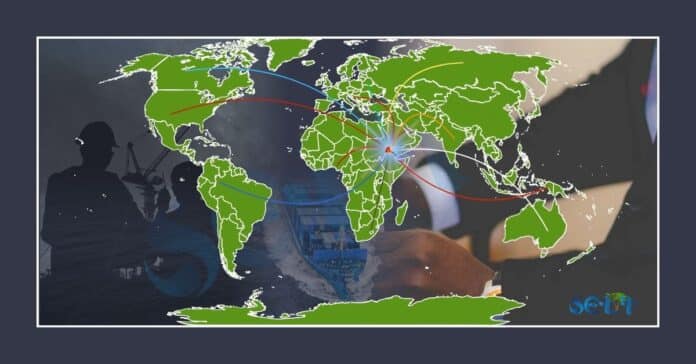The Eritrean diaspora, leveraging its substantial potential, is urging the Eritrean government to implement the long-anticipated reforms necessary to create a favorable climate for investment in the nation. Over the past two decades, a significant number of dynamic, educated, and patriotic Eritreans have emigrated in search of improved opportunities, establishing communities across the globe.
The Eritrean diaspora plays a crucial role in bolstering the national economy through significant remittance flows to their families. However, it’s important to note the absence of official data from the Eritrean government, making it challenging to accurately quantify the remittance volumes sent from abroad. Estimates suggest these transfers may amount to millions of dollars and euros annually. Currently, the remittance framework in Eritrea lacks the infrastructure for investment; instead, these funds are predominantly consumed by the recipients. This trend can be attributed to the lack of observable initiatives and a conducive business environment that would encourage diaspora investors to engage in entrepreneurial ventures within Eritrea.
Statements from the president of Eritrea and various high-ranking officials indicate that the country is stable, with diminished security threats, and poised for direct foreign investment—an essential objective for the Eritrean populace. This affirmation aligns with the aspirations and ambitions of Eritreans abroad, who consistently advocate for the opening of investment avenues in their homeland. Such initiatives are projected to yield substantial economic benefits, enhance prosperity, generate employment for the youth facing unemployment, and ultimately mitigate emigration trends.
What Should the Government Do?
Establishing robust legal frameworks that provide clear guarantees and protections in the event of disputes with government entities is critical to effectively attracting and retaining both diaspora and foreign investors. In today’s global financial landscape, it is imperative for banks and financial institutions to undergo modernization to align with international standards, especially in terms of advanced communication and digital infrastructure. This modernization transcends being a mere optional enhancement; it is essential for competitiveness and operational efficiency in the current economy.
Moreover, essential infrastructure such as airports, seaports, and road networks requires comprehensive development, alongside a reliable electricity supply, to support economic activity. Investors will demand an ecosystem conducive to market vitality and healthy competition, characterized by minimal state intervention and regulatory frameworks that do not obstruct investment initiatives. Such an environment fosters investor confidence and drives sustainable economic growth.
In conclusion, the government has a significant opportunity to enhance its credibility by moving away from unfulfilled promises and focusing on meaningful institutional reforms and trust-building initiatives. By prioritizing these actions, we can create an environment that fosters business growth and attracts investment. These constructive efforts should initiate within the government and political party frameworks, as well as the relevant institutions, to lay a solid foundation for sustainable economic development.

